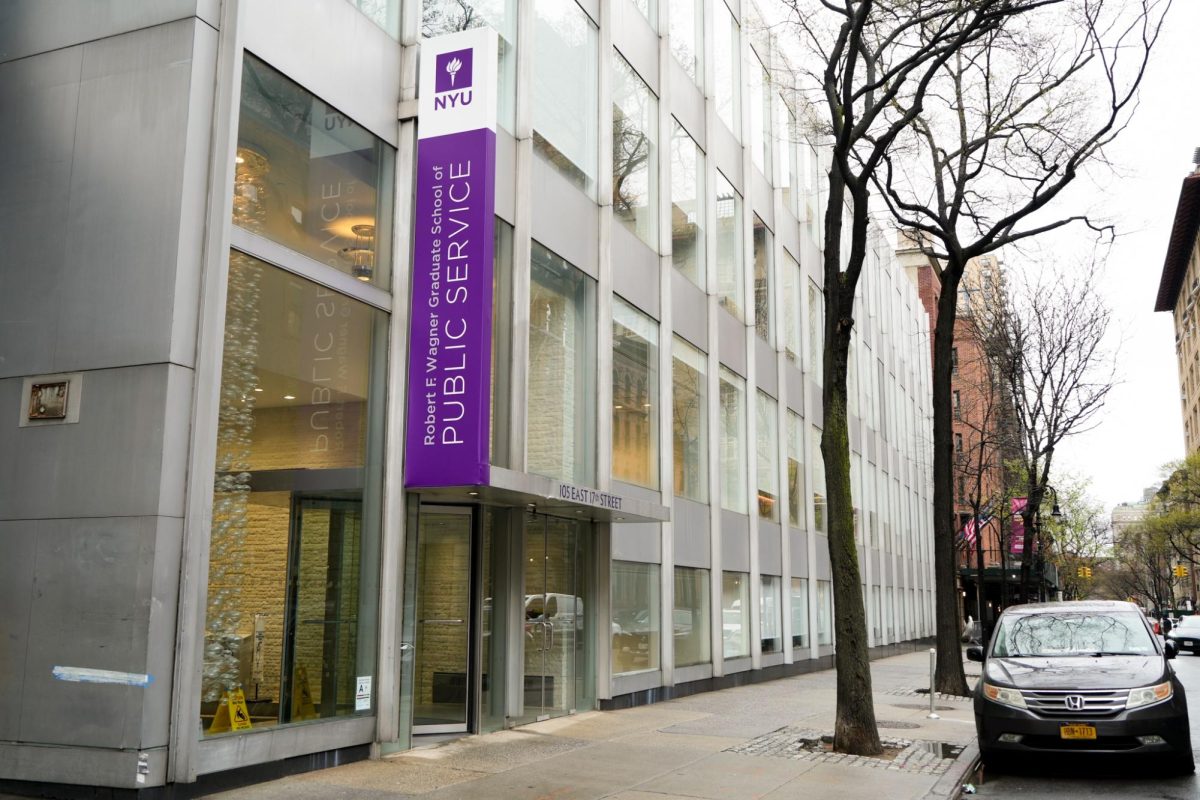“This conference on immigration and detention and deportation has become a radical act. It’s sad, but it’s true,” migration scholar and keynote speaker Allison Mountz told an audience of close to 200 people on Wednesday, who stood along the back wall and spilled out the conference room’s double doors.
The radical act in question was the NYU Migration Network’s Detention and Deportation Conference, hosted in the Wagner Graduate School of Public Service. The conference consisted of four panels covering a range of topics relevant to immigration enforcement and was open to NYU students and the broader New York City community.
The conference, which has been in the works since last May, comes amidst a backdrop of rapidly increasing raids at the hands of ICE and nationwide protests against the agency’s weaponization of deportation without due process and the influx in anti-immigrant rhetoric from the federal government.
“We decided to look at detention and deportation because we saw them as the main thrust of ICE’s enforcement apparatus — at the time we couldn’t foresee just how salient and urgent this topic would become,” said Natasha Iskander, the director of the NYU Migration Network and conference organizer, in an interview with WSN.
In the first panel of the conference, “The Politics and Policy Under Trump 2,” speakers laid the foundation for understanding the stakes of today’s current political climate.
The director of Human Rights Watch’s U.S. program, Tanya Greene, spoke about the inhuman practices of detention facilities such as the Krome detention center or “Alligator Alcatraz” in Florida and their severe humanitarian violations. She described the Trump administration as a “rights-abusive regime” that utilizes ICE raids and mass detentions to grab public attention. Greene sees these unprecedented and unlawful detention practices as testing grounds by the Trump administration to see how far they can go in violating immigration statutes and the Constitution.
Adam Cox, an NYU Law professor who focuses on immigration, added onto the conversation of today’s changing politics and policies under the Trump administration and its detrimental effects to the immigrant community in the United States.
“The entire immigration agenda is just a small piece of a much larger project, and that project is about centralizing control in the person of the president and his senior advisors, and undermining democracy in all kinds of ways,” Cox said in an interview with WSN.
The panel, “Technologies of Detention and Deportation,” walked listeners through the ways ICE uses data and surveillance to track immigrants. William Turton, an investigative reporter from Propublica, shared how he discovered that ICE was accessing comprehensive, private tax data to track down migrants.
“There’s a push to connect to more databases to build a technology of deportation,” Turton said. “They’ve created a system that has a new data exchange to the Department of Homeland Security for the purposes of immigration enforcement,”
Matthew Guariglia, a historian and senior policy analyst for the Electronic Frontier Foundation, emphasized how ICE isn’t just tapping into government databases — it’s also tapping into local police scanners.
“ICE is buying millions of people’s geolocations and weaponizing all government data toward immigration,” Guariglia said.
Panelists also highlighted the tactics used by ICE to push immigrants and asylum speakers to self-deport. Along with the financial incentive of $1,000 for immigrants who choose to self-deport, Muzaffar Chishti, a senior Migration Policy Institute fellow and lawyer, expressed how unprecedented policy changes in immigration utilize fear and cruelty as a mechanism for encouraging these communities to self-deport.
Miriam Jordan, the national immigration correspondent for The New York Times, left audience members with a powerful question: “Are we still committed to this idea that our country is one of immigrants?”
In the event’s conclusion, the panel on “Activists in NYC,” featured three speakers who are committed to pro-immigrant advocacy. Nuala O’Doherty-Naranjo, a lawyer who founded the Jackson Heights Immigrant Center in Queens, expressed her concerns for newly arrived immigrants in New York.
“When meeting with new arrivals, I’d always tell them: You’re part of this community now,” O’Doherty-Naranjo said. “You are New York, and you are the future of New York. Celebrate being a New Yorker and don’t hide — boy, was I dumb.”
Instead of sending migrants to court dates, O’Doherty-Naranjo is waking up hours before her workday to represent clients, so they can avoid being present at immigration court due to the recent arrests at immigration courts throughout the country.
The conference concluded with a stressed importance of community. Iskander felt that the panel had met her main goal in being one of the first steps for building a community of people interested in thinking about migration.
“Immigrants will always be a part of our community, and throughout the day, we have created a community together,” Iskander said. “Analysis like what we did today, is a kind of advocacy, and I hope everyone is encouraged to carry that advocacy forward.”
Contact Dylan Schmidt and Sam Donagi at culture@nyunews.com
This story NYU’s annual Detention and Deportation Conference means something different this year appeared first on Washington Square News.
